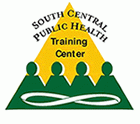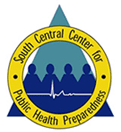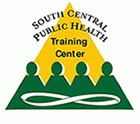Public Health Information Systems

Course Description:This course will introduce participants to the concept of medical/health informatics and provide some general examples of information technology as applied in health care. The focus is at the system level, not individual applications.
Category
- General Public Health
Format
- Self-study / Enduring
Credits
- 7.00 Participation/CE
Leadership, Strategic Planning and Systems Approaches

Course Description:This course encourages participants to think strategically about the types of decisions made in public health organizations and provides students with strategic analysis and planning skills.
Category
- General Public Health
Format
- Self-study / Enduring
Credits
- 10.00 Participation/CE
Facing Fear: Crisis Communication and Disaster Behavioral Health

Course Description:The fields of crisis communication and disaster behavioral health have knowledge that can be mutually beneficial when disaster strikes.
Category
- Behavioral Health
Format
- Self-study / Enduring
Credits
- 2.00 Participation/CE
Community Partnerships and Perspectives - Basic Level

Course Description:This course provides an introduction and overview to community partnerships and perspectives series. It will familiarize you with concepts and skills necessary in working with communities to improve public health.
Category
- General Public Health
Format
- Self-study / Enduring
Credits
- 1.00 Participation/CE
Mosquito Abatement in Louisiana Post Katrina and Rita

Course Description:On August 31, 2005, the landfall of Hurricane Katrina and its associated storm surge resulted in the destruction of large areas of Louisiana, which included Plaquemines and St. Bernard Parishes and the cities of Slidell and New Orleans.
Category
- Behavioral Health
Format
- Self-study / Enduring
Credits
- 2.00 Participation/CE
Two Years Later: Continued Psychological Difficulties of First Responders and the Affected General Population

Course Description:This course examines the continued psychological and adjustment issues in the population affected by Hurricane Katrina. The impact of the disaster on the first responders to Katrina is also discussed.
Category
- Behavioral Health
Format
- Self-study / Enduring
Credits
- 2.00 Participation/CE
Understanding and Responding to the Needs of Children After Large-Scale Disasters

Course Description:As communities across the country are planning and preparing their responses to large-scale disasters (natural, chemical, biological, radiological, nuclear, explosive), special attention needs to be paid to populations considered at high-risk for negat
Category
- Behavioral Health
Format
- Self-study / Enduring
Credits
- 2.00 Participation/CE
Consequences of a Foreign Animal Disease on the Rural Community

Course Description:The food industry, including livestock, is one of the most open industries in North America, and is readily susceptible to outbreaks of Foreign Animal Disease (FAD).
Category
- Behavioral Health
Format
- Self-study / Enduring
Credits
- 2.00 Participation/CE
The Pharmacist's Role in Disasters

Course Description:Hurricanes, tornadoes, bioterrorism, and pandemic flu are all examples of events that create emergencies for the public health system. Such events have disrupted the lives and healthcare of thousands of individuals and will do so again in the future.
Category
- Behavioral Health
Format
- Self-study / Enduring
Credits
- 2.00 Participation/CE
Improving Disaster Communication: The Role of Poison Centers in Public Health

Course Description:Disaster and mass event situations can lead to uncertainty, fear, anxiety and stress. In these situations, community members need effective and timely information.
Category
- Behavioral Health
Format
- Self-study / Enduring
Credits
- 2.00 Participation/CE

 Facebook
Facebook Twitter
Twitter LinkedIn
LinkedIn Forward
Forward